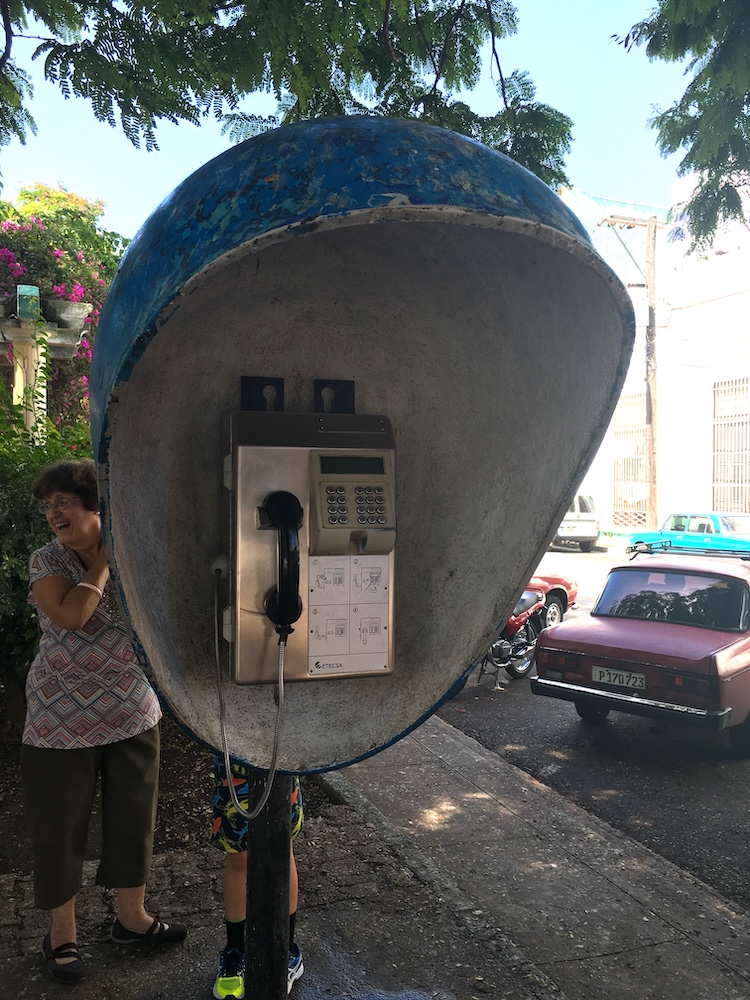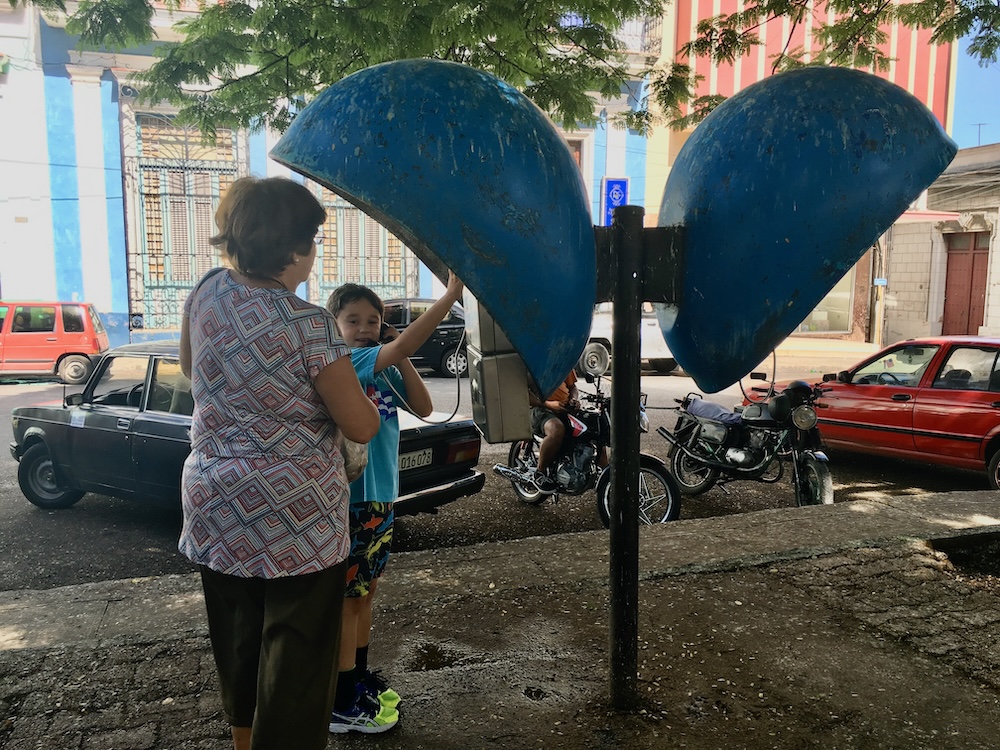Could the notable absence of a booth in telephones that Cuban engineers designed during the 1970s and 1980s say something about the general absence of privacy in a socialist society under Communist rule? I might never have considered that question on my own, but in the decade before 2018 when cell phones became widely available in Cuba, I found Cubans often posed it to me. After all, they said, the government had removed the existing booths in the public telephones that had been installed by foreign companies prior to the Revolution of 1959, often leaving only a skeletal roof behind. Why? Users of these old public telephones and the new ones placed by the state were then eternally exposed to not only Cuba’s tropical downpours, but to anyone curious enough to want to stand by and listen. This observation made sense in a society where monitoring and informing on one another to state agencies (like the local Committee for the Defense of the Revolution) was and is still officially considered a patriotic duty. Matanzas, 2016

